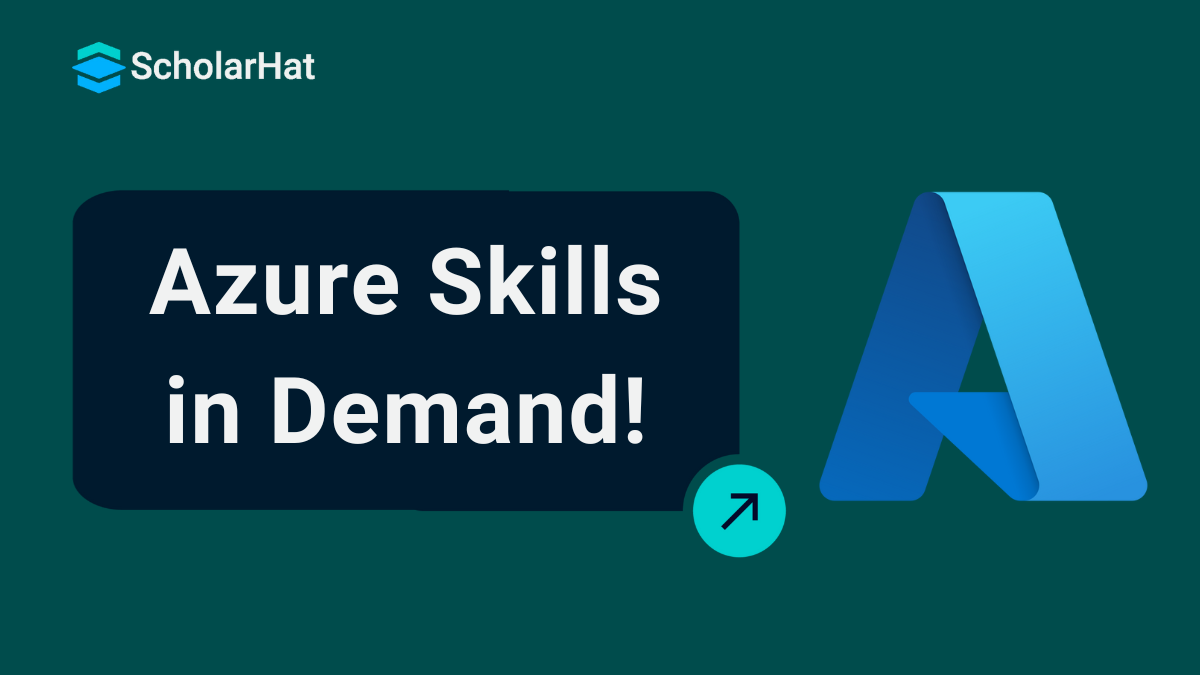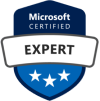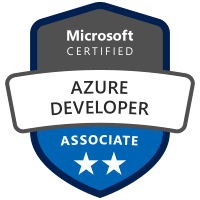18
AprAzure Skills in Demand 2025!
What are Azure Developer Skills?
Azure skills are skills required to work with Azure. An Azure developer is a software specialist who creates cloud-based applications using Microsoft Azure. It provides many different cloud services, including database management, machine learning, artificial intelligence, networking, computing, storage, analytics, and Internet of Things (IoT) services.
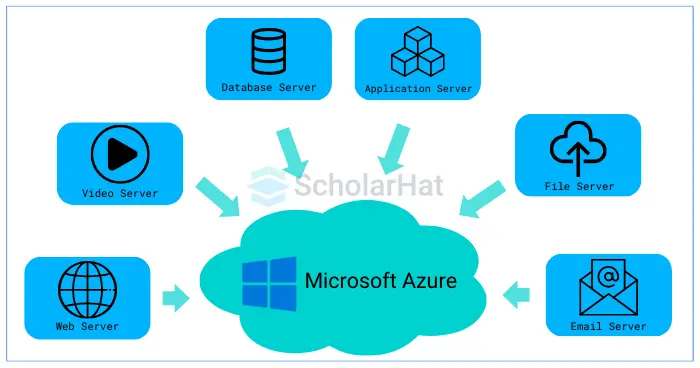
An Azure developer is required to be proficient in coding, security, testing, and deployment, working across all stages of application development to produce scalable and efficient solutions on the Azure platform. The popular Azure skills are cloud infrastructure management, data analytics, artificial intelligence, machine learning, and network virtualization.
In this Azure tutorial, we'll learn the most demanded Azure skills for 2025 Azure developers. If you don't want to miss out, do read this informative article.
Why Businesses Demand Azure Developer Skills?
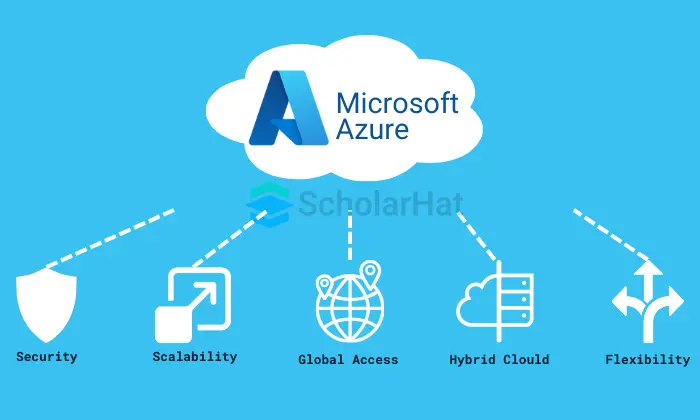
Many organizations have migrated to the cloud, which has created a significant need for skilled professionals who can manage and operate cloud infrastructure. Demand is expected to continue to grow as more organizations migrate their workloads to the cloud. Azure makes it easy for developers and IT professionals to build, deploy, and manage applications using technologies like Java, .NET, PHP, or Node.js.
| Read More: |
Let's look at some factors leading to businesses' increasing adoption of Azure.
- Cost Efficiency: Azure provides a pay-as-you-go model to mitigate businesses' capital expenses. Skilled Azure professionals can leverage this feature of Azure and maximize the financial benefits of cloud adoption.
- Increase in Use of Containers: Containers with Azure support quick application deployment, configuration and scaling.
- Growth in IoT: The increased adoption of IoT devices creates a need for skilled professionals with knowledge about Azure’s ability to store massive amounts of data collected by these devices securely. With enterprises' increasing interest in hybrid environments that combine on-premises software with the cloud, the demand for Azure skills rises.
- Microsoft’s commitment to Azure: Microsoft has several strategic commitments to make Azure even more reliable. Introduction of pre-built templates for data analytics and ML services, improvement in the performance of SQL Server on Azure VMs, significant investments across the entire suite of Microsoft 365 products, etc, increase the demand for Azure skills.
- Migrating from IaaS to SaaS Changes Requirements: Organizations are migrating from IaaS to SaaS. With this shift, companies need employees who can manage and operate their infrastructure.
- Big Data and Analytics: Azure provides Azure HDInsight and Azure Synapse Analytics for big data. This increases the requirement for skilled Azure professionals to harness these tools and help in data-driven decision-making.
| Read More: |
Top In-Demand Azure Skills in 2025
IT professionals with Azure expertise have a wide range of opportunities available to them. These can range from software development positions to management positions like Cloud Architect, where they oversee an entire team or department.
1. Azure DevOps
Azure DevOps is a cloud-based service that helps organizations manage their software development lifecycle. It includes a set of Azure services for planning, collaborating on code development, building and testing applications, and deploying them to Azure or other cloud providers.
Azure DevOps provides a complete end-to-end solution for DevOps teams, from planning and collaboration to build and deployment. It also integrates with other Azure services, such as Azure Active Directory and Azure Monitor, to provide a comprehensive solution. This skill set encompasses continuous integration, continuous delivery, and collaboration tools that streamline the development pipeline.
2. Azure Security
Azure security services include the Azure Security Center, Azure Key Vault, and Azure Active Directory.
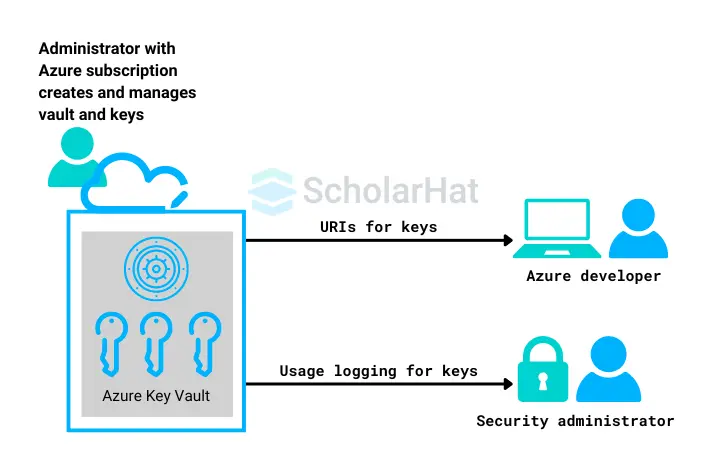
- The Azure Key Vault is a secure storage solution for sensitive data, such as keys, secrets, and certificates.
- Azure AD provides single sign-on (SSO) and multi-factor authentication (MFA) to help secure access to on-premises and cloud resources.
- Azure Security Center allows you to gain insight into your security state across hybrid cloud workloads, reduce your exposure to attacks, and respond to detected threats quickly.
An Azure professional needs to know how to implement and manage the security policies, monitor the process, and access the control to ensure that the Azure resources are compliant and secure with the regulatory requirements.
3. Azure AI and Machine Learning
Azure AI services and Azure Machine Learning both aim to apply artificial intelligence (AI) to enhance business operations. Azure AI services are for developers without machine-learning experience, while Azure Machine Learning is tailored for data scientists.
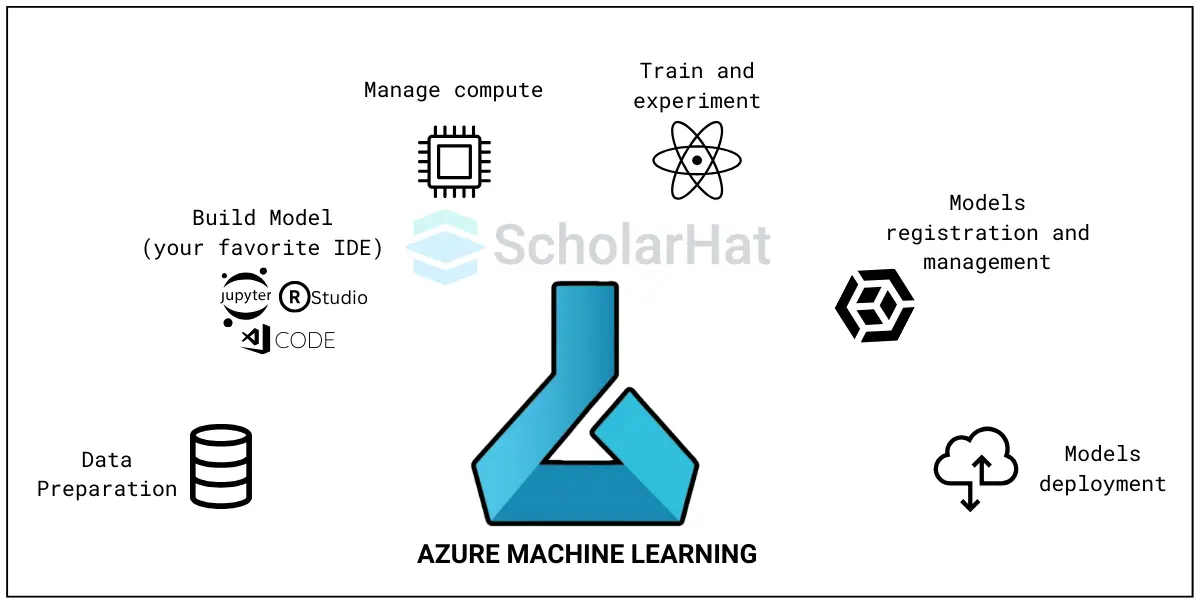
Azure AI services for big data support the following platforms and connectors: Azure Databricks, Azure Synapse, Azure Kubernetes Service, and Data Connectors. Machine Learning Studio is a cloud-based machine learning service that helps businesses build predictive models without coding. AI Builder brings the power of AI to your solutions through a point-and-click experience.
Data scientists and AI enthusiasts will need skills in building, training, and deploying machine learning models using Azure services.
4. Azure Data Engineering
An Azure data engineer ensures that data pipelines and data stores are high-performing, efficient, organized, and reliable, given a specific set of business requirements and constraints. You should be proficient in using the following to create data processing solutions:
- Azure Data Factory is a cloud-based data integration service that allows you to create data-driven workflows for orchestrating and automating data movement and transformation.
- Azure Synapse Analytics is an enterprise analytics service that accelerates time to insight across data warehouses and extensive data systems.
- Azure Stream Analytics is a fully managed stream processing engine designed to analyze and process large volumes of streaming data with sub-millisecond latencies. It takes only a few clicks to create an end-to-end streaming data pipeline that connects to multiple sources and sinks.
- Azure Event Hubs is a fully managed, real-time, scalable, and trusted data ingestion service.
- Azure Data Lake Storage includes all the capabilities required to make it easy for developers, data scientists, and analysts to store data of any size, shape, and speed and do all types of processing and analytics across platforms and languages.
- Azure Databricks is a fully managed first-party service that enables Azure to have an open data lakehouse.
5. Azure Networking
Skilled professionals in virtual networks, VPNs, ExpressRoute, and Azure DNS who can design, implement, and manage Azure networking solutions are highly required.
The various categories of Azure Networking Services are
- Connectivity services: Virtual Network (VNet), Virtual WAN, ExpressRoute, VPN Gateway, NAT Gateway, Azure DNS, Peering service, Azure Virtual Network Manager, Route Server, and Azure Bastion can be used to connect Azure resources and on-premises resources.
- Application protection services: Protect your applications using Azure Load Balancer, Private Link, DDoS protection, Firewall, Network Security Groups, Web Application Firewall, and Virtual Network Endpoints.
- Application delivery services: Deliver applications in the Azure network using Content Delivery Network (CDN), Azure Front Door Service, Traffic Manager, Application Gateway, Internet Analyzer, and Load Balancer.
- Network monitoring: Monitor your network resources using networking services in Azure, such as Network Watcher, ExpressRoute Monitor, Azure Monitor, or VNet Terminal Access Point (TAP).
6. Azure IoT
There's an innumerable rise in IoT devices and technologies. Taking this aspect into consideration, the demand for professionals skilled in cloud services, edge components, and SDKs has started evolving. Some of the essential Azure IoT skills are:
- Device Connectivity and Management: Learn to connect, configure, and manage IoT devices using Azure IoT Hub.
- Data Ingestion and Processing: Hands-on with Azure IoT Edge to process data at the edge and Azure Stream Analytics to analyze and process data from IoT devices in real-time.
- Integration with Azure Services: You must be capable of integrating IoT solutions with other Azure services, such as Azure Functions and Azure Logic Apps.
- IoT Solution Development: Azure IoT Central is used to develop IoT solutions.
- Monitoring and Diagnostics: Get experience with using Azure Monitor and Azure IoT Hub diagnostics to monitor the health and performance of IoT solutions.
7. Azure Kubernetes and Containers
You need to have experience with Azure Kubernetes, container instances, and DevOps pipelines. The individuals must know how to develop and manage Kubernetes workloads and services using the Azure resource manager templates, Helm Charts, and automation scripts.
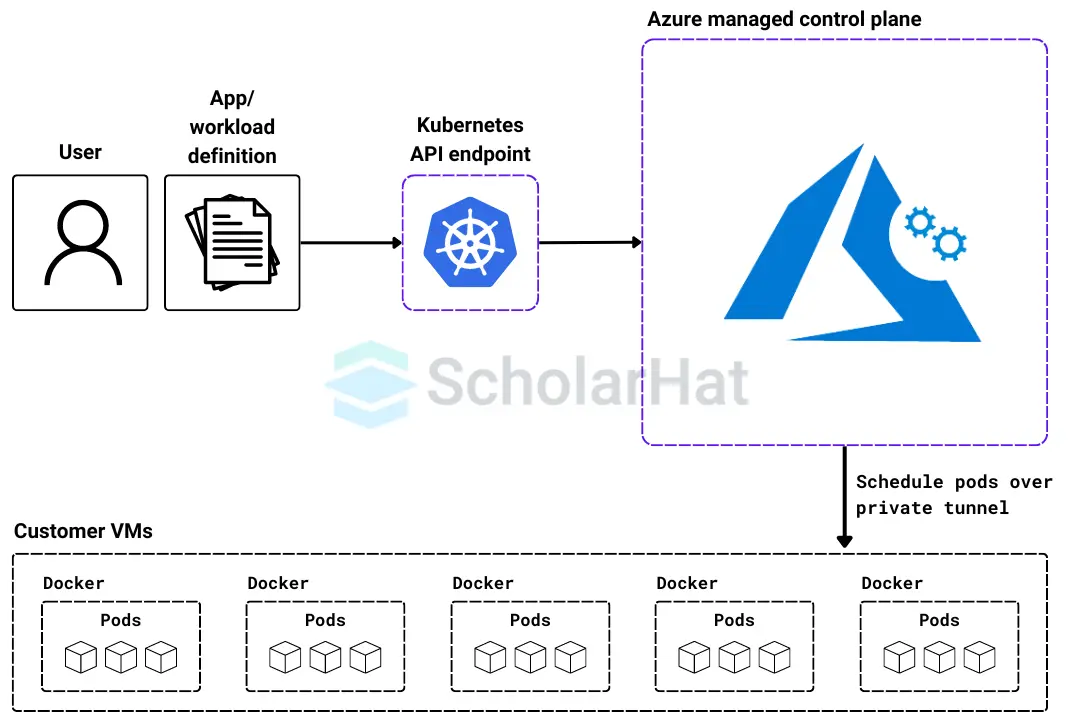
Let's understand some of the crucial skills in detail:
- Containerization: Writing Dockerfiles, managing Docker images, and handling container registries such as Azure Container Registry (ACR) is required.
- Understand Kubernetes Fundamentals: Learn about pods, services, deployments, namespaces, and ConfigMaps. Also, know the Kubernetes architecture and components, such as the API server, scheduler, controller manager, etc.
- Azure Kubernetes Service (AKS): You need minimal container orchestration expertise to use AKS.
- Advanced Kubernetes Features: Learn about custom resource definitions (CRDs), operators, and serverless frameworks like KEDA.
8. Azure Serverless Computing
Serverless computing is one of the most coined terms in the cloud these days.
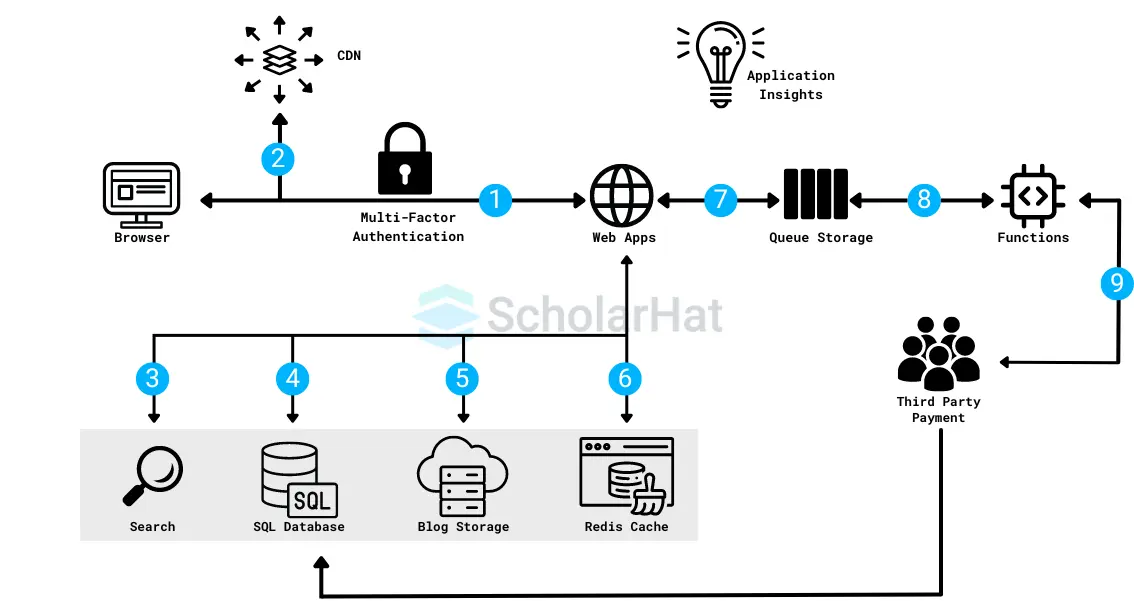
- Azure functions are event-triggered pieces of code with logic to perform a specific task by connecting to different Azure or third-party services. We only need to pay per request to the function.
- Azure Logic Apps enable the creation of workflows that automate and orchestrate tasks, integrating with various Azure services and external systems.
- Azure Event Grid reacts to events from Azure services or custom sources and routes them to different subscribers, such as Azure Functions and Logic Apps.
- Azure Cosmos DB is a globally distributed, multi-model database service designed for highly responsive and scalable applications.
- Azure Service Bus is a cloud messaging platform that provides both topics and queues.
9. Automation and Scripting
Azure Automation delivers cloud-based automation, operating system updates, and configuration services that support consistent management across Azure and non-Azure environments. It includes process automation, configuration management, update management, shared capabilities, and heterogeneous features.
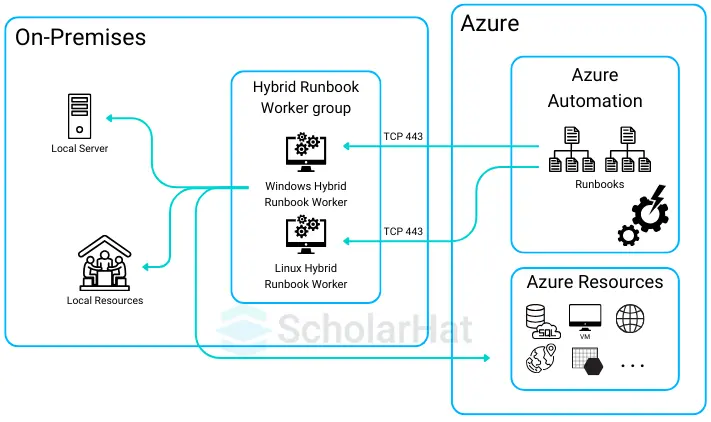
The following are the essential skills and tools required for effective automation and scripting in Azure:
- Azure PowerShell: Learn to write and run scripts to automate repetitive tasks and schedule these scripts using Azure Automation or other scheduling tools.
- Azure CLI (Command-Line Interface):The Azure CLI creates automation scripts and integrates them into CI/CD pipelines.
- Azure Resource Manager (ARM) Templates: Defining infrastructure as code using ARM templates to automate the deployment and management of Azure resources.
- Bicep: Bicep is a domain-specific language (DSL) used to deploy Azure resources. Its syntax is simpler and more readable than that of ARM templates.
10. Azure Governance and Compliance
Cloud governance is a continuous process. It requires ongoing monitoring, evaluation, and adjustments to adapt to evolving technologies, risks, and compliance requirements. Some of the key skills are:
- Azure Policy: Understanding policy effects, using policy initiatives (policy sets), and managing policy compliance across the Azure environment.
- Azure Resource Manager (ARM): This includes structuring and organizing resources using resource groups and management groups.
- Azure Security Center: Learn about monitoring and improving the security posture of Azure resources using the Security Center.
- Understanding Regulations: Knowledge of critical regulatory standards and frameworks such as GDPR, HIPAA, ISO, NIST, and SOC.
- Azure Governance Framework: Try developing and implementing a governance framework that includes policies, standards, and best practices for managing Azure resources.
11. Private and Public Cloud Balance
It is essential to evaluate where private and public cloud-based resources make the most sense for every project. This can further help organizations balance costs and maintain flexibility and security. Cloud balancing skills need expertise in cloud service providers, migration, automation, and architecture.
How to Develop and Enhance Azure Skills?
- Azure development requires knowledge of numerous programming languages, such as C#, Java, and Python.
- Understanding microservice architecture enables developers to create modular, scalable apps on Azure.
- Understanding Azure's Software Development Kits (SDKs) and Application Programming Interfaces (APIs) allows developers to use Azure services properly.
- Using robust authentication mechanisms such as Azure Active Directory (AAD) guarantees secure access to Azure resources.
- Following security best practices, including encryption, network security, and threat detection, is critical for protecting Azure apps and data.
- Azure developers must embrace a culture of continuous learning to stay current with emerging technology and best practices.
Certification and Training Resources for Azure Skills
Some of the popular Azure Certifications are:
| Read More: How to Build a Career with Microsoft Azure Certifications |
- AZ-104: Microsoft Azure Administrator: This Azure certification imparts IT professionals with enough knowledge to manage their Azure subscriptions, design and scale virtual machines, and employ storage solutions.
- AZ-900: Microsoft Azure Fundamentals: The Azure fundamentals exam presents an opportunity to demonstrate basic knowledge of cloud concepts, services, security and privacy in Azure, workloads, and pricing and support in Azure.
- AZ-303: Microsoft Azure Architect Technologies: The AZ-303 learning path thoroughly prepares candidates to design and implement solutions that execute on Microsoft Azure.
- AZ-305: Microsoft Certified: Azure Solutions Architect Expert: The AZ-305 certification exam concentrates on advanced knowledge and experience in IT operations, such as virtualization, networking, security, identity, data platforms, disaster recovery, business continuity, and governance.
- AZ-304: Microsoft Azure Architect Design: The learning path of AZ-304 is carefully organized to make candidates responsible for counseling stakeholders and converting business requisites into authentic, safe, and scalable cloud solutions.
Take our Azure skill challenge to evaluate yourself!

In less than 5 minutes, with our skill challenge, you can identify your knowledge gaps and strengths in a given skill.


